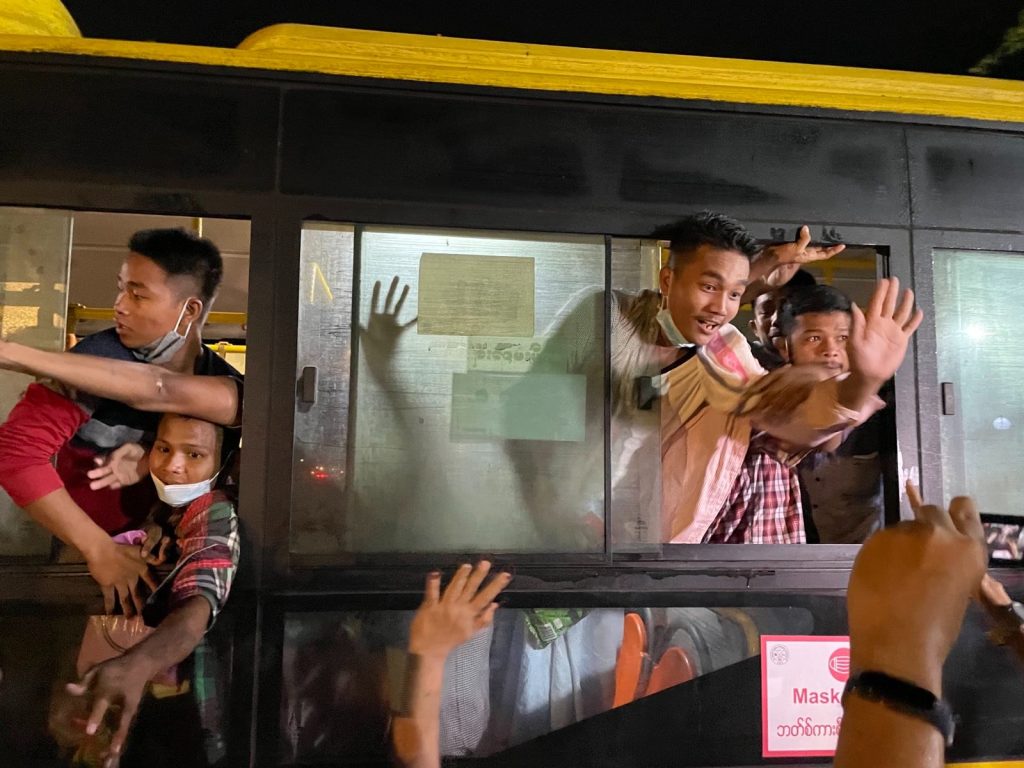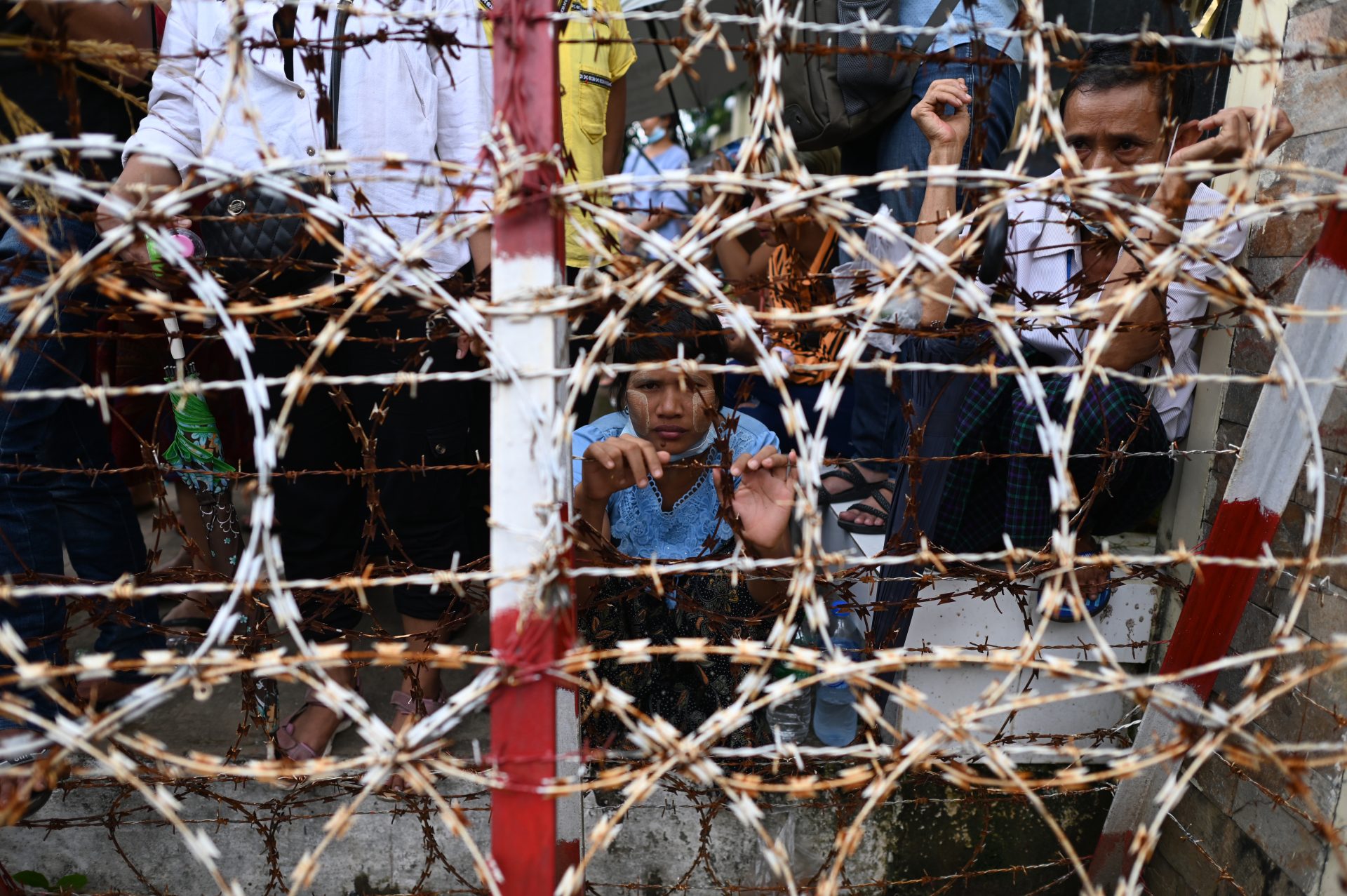Myanmar’s junta has condemned more than 100 people to death in the Yangon region alone since it seized power a year ago.
None of the people sentenced were given the right to defend themselves. Of the 101 people documented by RFA’s Myanmar Service, 50 were convicted in secretive military tribunals where they were denied access to legal representation, while the rest were sentenced in absentia.
Those convicted hailed mostly from the Yangon townships of North Okkalapa, South Dagon, North Dagon, Hlaingtharyar, Dagon Port and Shwepyithar, where martial law has been in place amid resistance to military rule.
Two of the more well-known prisoners facing the death penalty are Phyo Zeyar Thaw, a lawmaker with the deposed National League for Democracy (NLD) party, and activist Ko Jimmy, a leader of the 88 Generation Student group. Both were sentenced for violating the country’s Anti-Terrorism Law, according to a Jan. 21 announcement by the junta.
Bo Bo Oo, a former NLD lawmaker from Yangon’s Dallah township, told RFA that not only were the two men sentenced without legal representation, but photos suggested they were tortured during interrogation.
“We could say they are two of the worst cases of arbitrary arrests and torture of civilians in the country since the coup,” he said.
“Both were given maximum sentences. By closely looking at the pictures [released by the junta] of the two, we could surmise they had been severely tortured during interrogation. Arresting and torturing people anytime, anywhere, is a threat to civilization.
Bo Bo Oo said the junta is cracking down on those who oppose it and sending a message to imposing maximum penalties including death.
Ko Jimmy’s wife, Nila Thein, who is also a well-known 88 Generation Student, told RFA that she would not negotiate with the junta over her husband’s sentence and would continue to fight for democracy.
A high court lawyer in Yangon, who spoke on condition of anonymity, criticized the military council for terrifying the public with the threat of executions.
“Their judiciary has no justice and no independence. So, I’m not going to say their verdicts are right,” he said. “There have been no executions since the [last] military takeover in 1988. The junta is trying to intimidate the population.”

‘Serious rights violations’
Aung Myo Min, human rights minister for the country’s shadow National Unity Government (NUG), called the death sentences “serious human rights violations.”
“[The death penalty] is a legal procedure that must be approved by the president and the present sentences are not even in accordance with the laws of the country,” he said.
“They are arresting anyone they like and then handing out death sentences, and these are very serious [violations of Myanmar’s laws].”
NUG Minister for Defense Naing Htoo Aung called the junta’s death sentences “unacceptable.”
“The people of Myanmar and the entire world understand the true situation,” he said. “The entire [legal] process is unfair.”
Attempts by RFA to contact junta Deputy Information Minister Zaw Min Tun went unanswered Thursday.
Since orchestrating a coup on Feb. 1 last year, security forces have arrested nearly 8,800 civilians and killed close to 1,500 — mostly during nonviolent protests of junta rule, according to the Bangkok-based Assistance Association of Political Prisoners.
Earlier this week, the Swedish Embassy in Yangon issued a statement calling for the abolishment of the death penalty in Myanmar and the unconditional release of all political prisoners.
Copyright © 1998-2020, RFA. Used with the permission of Radio Free Asia, 2025 M St. NW, Suite 300, Washington DC 20036







